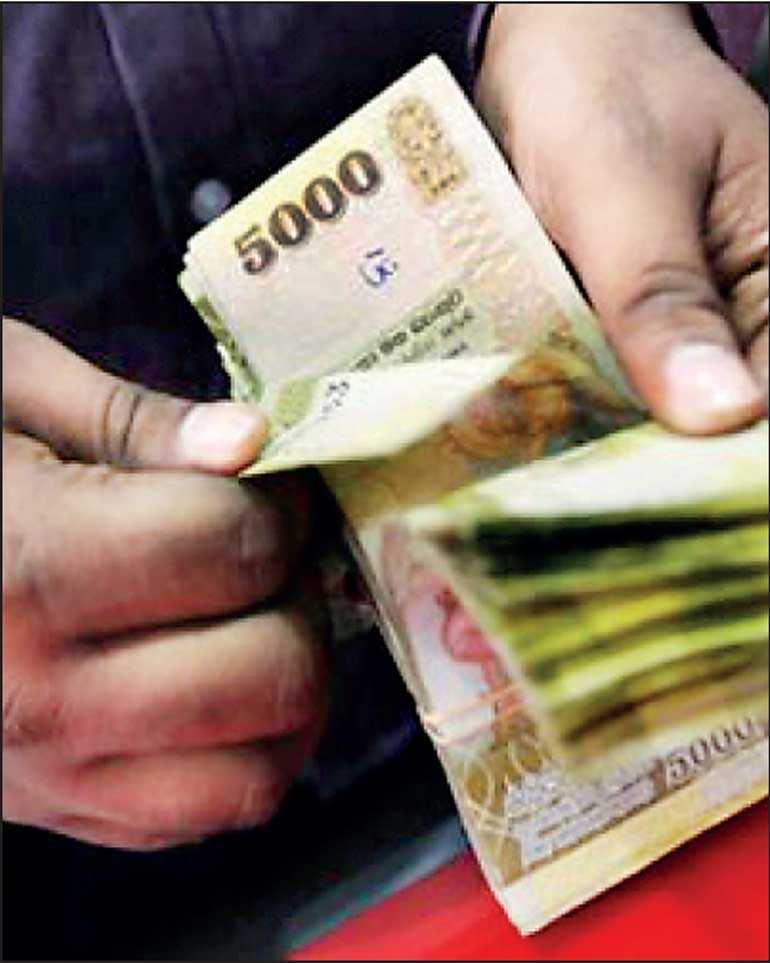Wednesday Feb 18, 2026
Wednesday Feb 18, 2026
Friday, 1 February 2019 00:00 - - {{hitsCtrl.values.hits}}
REUTERS: Sri Lanka’s rupee rose 0.5% yesterday, and posted a gain of 2.4% for the month, as foreign investors purchased government securities, while Fitch rating agency revised down forecast for the currency for 2019 and 2020.
Fitch Solutions Macro Research, a subsidiary under Fitch Group in a report revised its average forecast for the rupee weaker to 186.00 per dollar for this year and 192.00 in the next year, from the previous 177.00 and 183.00 respectively. 
“We expect the rupee to continue weakening over the short term due to a worsening terms of trade, although the pace of depreciation is likely to ease from what was seen during the November/December 2018 constitutional crisis,” it said.
Sri Lanka’s higher inflation trajectory relative to the United States, the nation’s need to accumulate dollars to repay its external debt and to achieve the IMF’s foreign reserves target over longer term will likely see further weakness for the rupee – Fitch.
The rupee closed at 178.40/60 per dollar, compared with Wednesday’s close of 179.30/60, market sources said. On 3 January, the rupee dropped to an all-time low of 183.00 against the dollar. The currency has appreciated 2.4% so far this year.
The Colombo Stock Index ended 0.02% weaker at 5,989.90 yesterday. Turnover was Rs. 442 million ($ 2.48 million), nearly half of last year’s daily average of Rs. 834 million.
Foreign investors net sold Rs. 82.5 million worth shares yesterday. They have been net sellers of Rs. 2.3 billion worth of stocks so far this year and Rs. 15.7 billion since the political crisis began on 26 October 2018.
Investor confidence in Sri Lanka is stabilising after the country repaid a $ 1 billion sovereign bond in mid-January, Central Bank of Sri Lanka Governor Indrajit Coomaraswamy told Reuters on Monday.
Worries over heavy debt repayment after a 51-day political crisis that resulted in a series of credit rating downgrades have dented investor sentiment as the country is struggling to repay its foreign loans, with a record $ 5.9 billion due this year, including $ 2.6 billion in the first three months.
The International Monetary Fund on 16 January said it would resume discussions for further disbursal of part of a $ 1.5 billion loan amid investor worries of heavy debt repayments.
The rupee dropped 16% in 2018, and was one of the worst-performing currencies in Asia due to heavy foreign outflows.
The rupee has declined 3.5% since a political crisis started in October. The political crisis had dented investor sentiment and delayed Sri Lanka’s borrowing plans.
Sri Lanka was plunged into political turmoil when President Maithripala Sirisena abruptly removed Prime Minister Ranil Wickremesinghe and then dissolved Parliament. Wickremesinghe was later reinstalled as premier. A court ruled the move was unconstitutional.